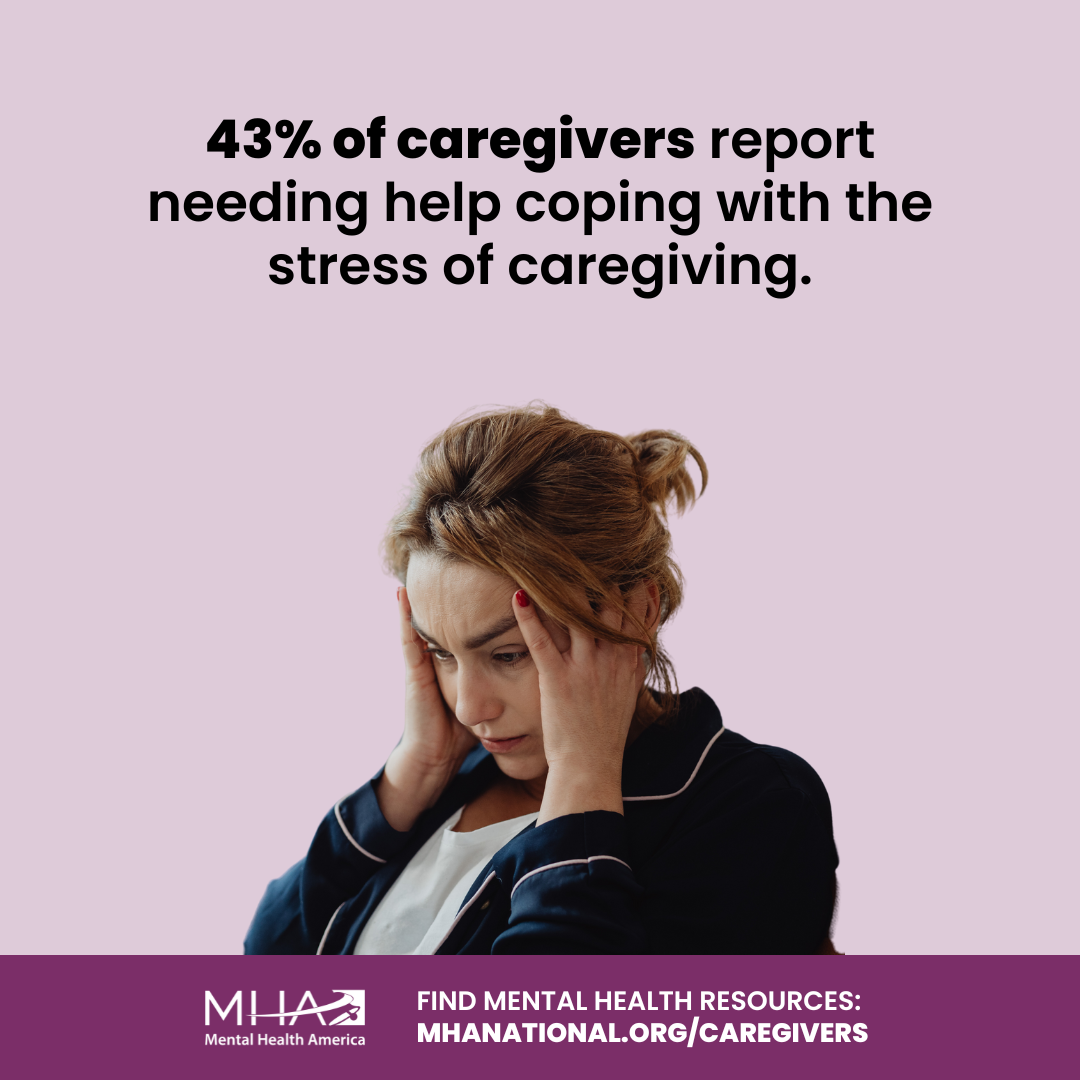
Share On Social!
November is National Family Caregivers Month (NFCM)!
NFCM is an opportunity to recognize family caregivers across the country and “raise awareness of caregiving issues, educate communities, and increase support for caregivers,” according to the Administration for Community Living.
This year, Mental Health America has shared new resources for both caregivers and employers.
“We know caregivers need support in balancing their personal and professional obligations, and employers need resources to better support their caregivers on staff,” according to Mental Health America.
Let’s dive deeper into these educational tools and find out how they can benefit Latino caregivers.
Latinos and Caregiving
41.8 million Americans provided unpaid care to an adult older than 50 in 2020.
Similarly, 89% of caregivers provide care for a relative or other loved one, such as a spouse.
“Caregiving remains an activity that occurs among all generations, racial/ethnic groups, income or educational levels, family types, gender identities, and sexual orientations,” according to an AARP Family Caregiving Report.
Latinos make up 17% of total family caregivers in the United States.
While many are providing care for their family members, it can be difficult to juggle other priorities and outside factors.
“Family caregivers work long hours and are often unpaid for their time spent supporting loved ones,” according to a Place for Mom. “Many of these caregivers also have full-time jobs and other responsibilities, like raising children, volunteering, and doing housework and chores.”
Other challenges for caregivers can include:
- Time management
- Emotional and physical stress
- Financial strain
- Depression and isolation
- Sleep deprivation
- Being afraid to ask for help
Many Latinos are also considered “sandwich generation” caregivers, this means that they care for an aging parent and at least one child.
With these challenges looming over family caregivers, it’s important for them to have helpful tools and resources for support.
Mental Health America’s Caregiver Resources
Being a family caregiver can be difficult for one’s mental health, especially when a caregiver has another job.

Mental Health America has provided a list of tips to help with talking to employers about mental health and emotional well-being.
This includes topics like workplace accommodations and paid time off, resources to help employers understand more about caregiving, among other subjects.
“This can reduce your anxiety about how the conversation will go. Remember that you don’t need to tell your employer everything about a situation for them to understand that something in your personal life is affecting you in other areas,” according to Mental Health America.
Making the transition into a caregiver can be overwhelming.
Mental Health America also has created a Guide for New Mental Health Caregivers, which includes resources for caregivers to browse, including information on legal caregivers, insurance and paying for care, best practices, and, of course, mental health resources.
“Approximately 1 out of 4 caregivers of a person with a mental illness have depression themselves,” according to Mental Health America. “The stress, worry, and emotional roller coaster felt while being a caregiver has consequences if you do not take care of yourself.”
The Caregiver Mental Health Resource Center also contains tools for a variety of mental health challenges that individuals might experience while caregiving like crisis planning for caregivers and resources for parents.
“Supporting caregivers with information and resources can help them maintain their mental health and better serve loved ones with mental illness,” according to Mental Health America.
Resources for South Texas Alzheimer’s Caregivers
Of the millions of caregivers that provide unpaid care for people with Alzheimer’s or other dementias, of those caregivers, about 25% are Latino.
In Texas, Latinos make up 40.2% of the population, making them the largest share of the state’s population.
Are you a caregiver living in San Antonio or surrounding areas?
Learn more about caregiver programs and resources in the area including the Caring for the Caregiver program at UT Health San Antonio that provides support groups, workshops, and events among other helpful resources.
The AARP website also contains a section specifically for family caregivers in Texas and provides a guide that financial, health, and general resources among others.
Find a full list of San Antonio and other South Texas caregiver resources here.
How You Can Help Latino Health
Latinos of all ages are disproportionately impacted by several health issues including Alzheimer’s disease, diabetes, and cancer.
What can you do to make a difference?
Consider volunteering for a clinical trial!
Clinical trials are studies with volunteers that help researchers learn how to slow, manage, and treat different diseases.
Watch these bilingual videos on clinical trials.
“Latinos in clinical trials are not only helping themselves, but they are also building a future with better treatments that can help their families and communities in the future,” said Dr. Ramirez, leader of Salud America! at UT Health San Antonio.
Dr. Ramirez is creating new ways to encourage Latinos to volunteer for cancer and Alzheimer’s clinical trials, with support from Genentech, a member of the Roche Group.
She is raising awareness by using Salud America! to showcase open clinical trials and uplift the stories of Latino clinical trial participants along with social media events and webinars.
Looking for a clinical trial that best fits you or someone in your family?
Search open clinical trials on the Salud America! clinical trials page or find a clinical trial near you at clinicaltrials.gov.
By The Numbers
142
Percent
Expected rise in Latino cancer cases in coming years




I know this is a two year old article, but Bias is another reason why some Hispanic people think about or attempt suicide. I’m actually part Filipino, German and English and I ended up looking stereotypically Hispanic and my surname is Spanish due to my Filipino side since the Spanish colonized the Philippines. I’m a woman though and I’ve thought about it for a number of reasons involving my health from a rare disorder that caused learning issues and also I have obvious cancer symptoms Ive tried getting help with. I’ve also been treated poorly and sometimes in very scary situations because of obvious Bias and Prejudice due to my appearance. I’m just saying Bias against people who are Hispanic and “look Hispanic” is a real thing. I apologize if it was in this article but I didn’t notice it, But I do apologize if its in there. I just think it needs to be addressed more. Thank You